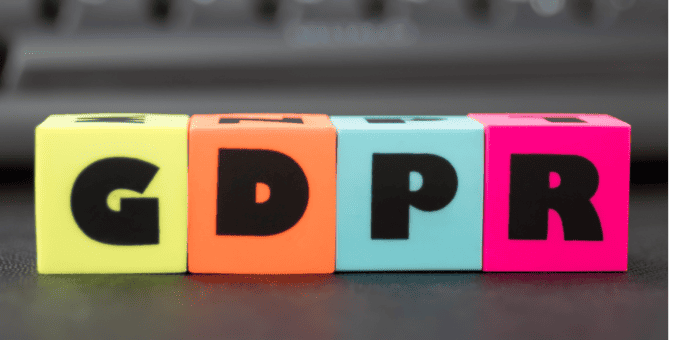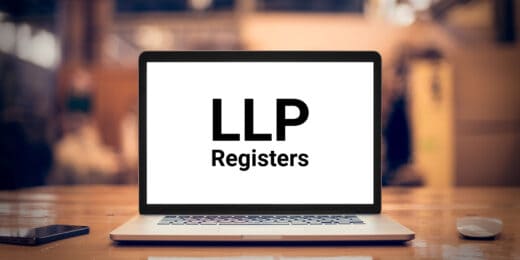The General Data Protection Regulation, commonly referred to as ‘GDPR’, came into effect in 2018. At the time of its implementation, it was a huge deal for businesses, large and small – who had to revisit and improve their data processes and protocols. A lot has happened in the past five years, but as a small business owner, GDPR should still be at the forefront of how you operate.
In this post, we’re going to take a look at where the UK currently sits with GDPR, and then highlight five reasons why GDPR is still important to small businesses, five years after its introduction. Let’s get started.
The basics of GDPR
GDPR is a regulation put in place to allow individuals to control how their personal data is processed, covering how it’s collected, stored, and then used.
It is a European Union regulation that is supervised by the European Data Protection Board. Now that we have left the EU, UK GDPR (the UK’s interpretation of GDPR) is enforced by the Information Commissioner’s Office (ICO). In turn, this is implemented through the Data Protection Act 2018.
However, if a business has customers in the UK and in the European Economic Area (EEA), it must comply with the regulations as they are set out in the UK and the EU.
GDPR affects the majority of businesses in the UK and the EU, because the majority of businesses will handle personal data in some capacity.
The data protection principles
Any business that uses personal data must ensure that this data is:
- Used fairly, lawfully, and transparently
- Used for specified, explicit purposes
- Used in a way that is adequate, relevant, and limited to only what is necessary
- Accurate and, where necessary, kept up to date
- Kept for no longer than is necessary
- Handled in a way that ensures appropriate security, including protection against unlawful or unauthorised processing, access, loss, destruction, or damage
Personal data (as defined by UK GDPR) is any information pertaining to an individual that could help identify them, such as a name, date of birth, or address (see the ICO’s guidance on what is considered personal data).
An individual’s data rights
As part of UK GDPR, and outlined under the Data Protection Act 2018, individuals must be able to:
- Find out how their data is being used
- Get access to their data
- Have any incorrect data updated
- Get data deleted
- Stop (or restrict) the processing of their data
- Reuse data for different services
- Raise objections on how their data is being processed
5 reasons why your company must comply with GDPR
Now, let’s look at the key reasons why your business needs to comply with GDPR.
1. Avoid large penalties
Let’s start at the obvious place. Failure to comply with the GDPR regulations relating to the data protection principles or individual rights, as set out above, can result in a significant penalty that could be crippling for your small business.
The ‘higher maximum’ penalty imposed by the ICO is £17.5 million or 4% of your business’s annual turnover – whichever is higher. Any monetary penalty that is imposed is decided by the ICO on a case-by-case basis.
2. Steer clear of other compensation claims
As well as the sanctions imposed by the ICO, by breaching data protection regulations, you also open yourself up to compensation claims from any individuals who feel that they have suffered financial losses because you have mishandled their data.
So, even if the ICO decides against giving your business a penalty, any person impacted by a breach could still take action and financially hurt your business.
3. You won’t be named and shamed
Through their ‘Action we’ve taken’ page, the ICO essentially shame any organisation that they find to be in breach of GDPR regulations.
By visiting the page, someone can view a list of all the businesses that have had action taken against them by the ICO.
The case can then be explored in more detail through PDF files of the correspondence between the business in question and the ICO.
Having your business appear on this page will do a great deal of reputational damage that could negatively impact your relationship with existing customers, providers and partners, and harm any prospective business relationships.
4. Demonstrate an attitude of compliance
Small businesses that comply with GDPR, and demonstrate this, can gain a competitive advantage over those that do not.
By demonstrating a commitment to data protection and privacy, your small business can differentiate itself from competitors and also build trust with customers.
This can lead to increased loyalty and sales, as well as a positive reputation in the industry in which you operate.
5. Enhance your security measures
One of the key elements of GDPR regulations is the secure storage of personal data. Small businesses may be more vulnerable to data breaches, as they often have fewer resources to devote to data security.
A result of complying with GDPR is that your business will enhance data security and reduce the risk of harmful breaches.
How your small business can comply with GDPR regulations
Ensuring your business is fully compliant with GDPR is no small task. However, we can help with our GDPR Compliance Package, available for only £39.99.
With the pack, we’ll give you everything you need to make sure your company is playing by the rules. The package includes the following documents and templates:
- Strategy document
- Data security policy
- Information audit template
- General data protection notice
- Data classification policy
- Controller processing activities template
- Retention and erasure policy
- Privacy notice and consent template
- Due diligence checklist
- Subject access request form
- Data breach policy template
- Lawful basis for processing
- Employee consent and privacy policy templates
How to buy our GDPR Compliance Package
To purchase the package as an existing Rapid Formations customer:
- Log in to your Online Client Portal
- Select ‘My Companies’
- Click on your company name
- Select the ‘Shop’ icon
- Scroll down to ‘Other items’ and select ‘Add’ next to the ‘GDPR Compliance Package’
- Select ‘View Cart’
- Proceed to make payment
The package will then immediately be emailed to you.
If you are not currently a Rapid Formations customer, simply give our team a call at 020 7871 9990 and we’ll help process the order over the phone.
So there you have it!
We hope you now understand why GDPR is still incredibly important for UK small businesses.
If you have any questions, please leave a comment and we’ll be happy to help. Thanks for reading.
Please note that the information provided in this article is for general informational purposes only and does not constitute legal, tax, or professional advice. While our aim is that the content is accurate and up to date, it should not be relied upon as a substitute for tailored advice from qualified professionals. We strongly recommend that you seek independent legal and tax advice specific to your circumstances before acting on any information contained in this article. We accept no responsibility or liability for any loss or damage that may result from your reliance on the information provided in this article. Use of the information contained in this article is entirely at your own risk.












Join The Discussion